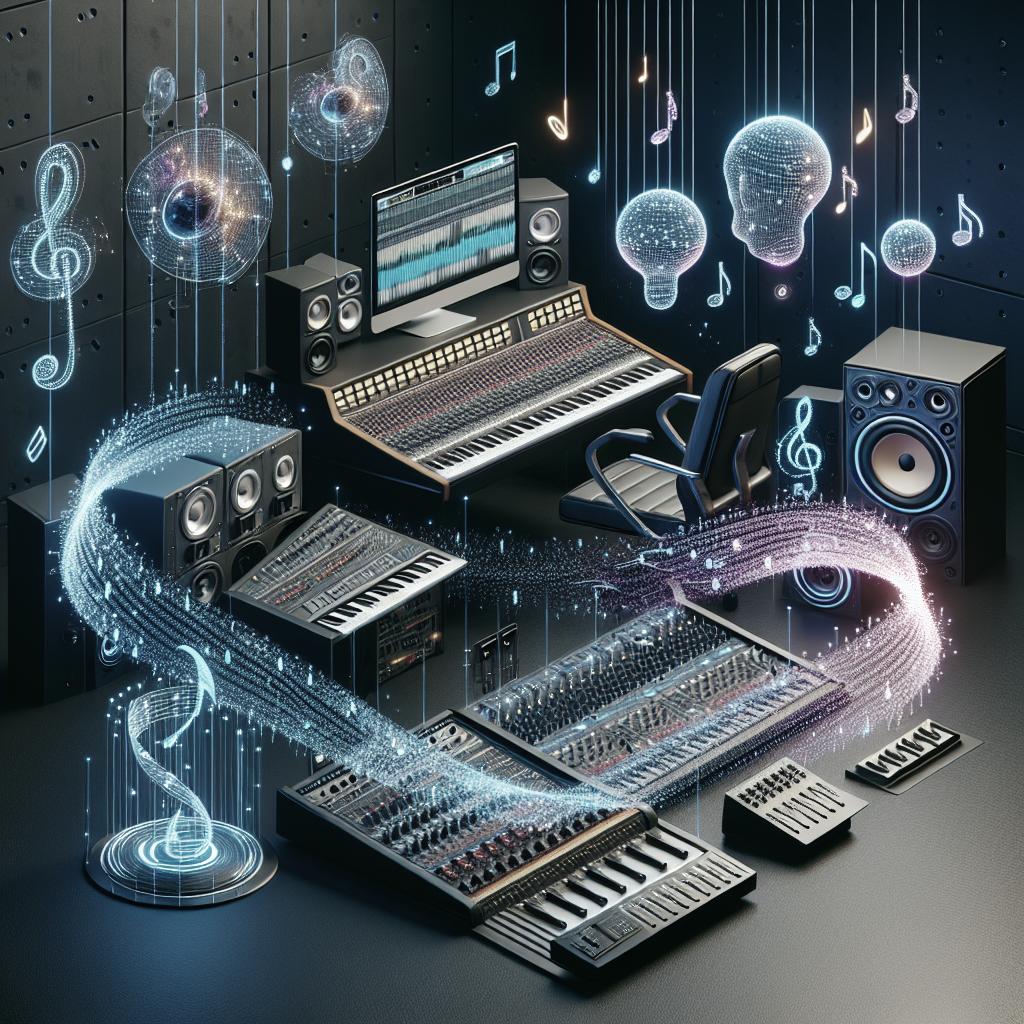“`html
Emerging Technologies in Music
In recent years, the music industry has undergone a technological revolution that is transforming the way music is created, produced, and consumed. Emerging technologies such as artificial intelligence (AI), advanced analytics, and online platforms are shaping new opportunities for musicians and fans alike. In this blog post, we will explore the impact of these innovations from AI-driven music tools to collaborative production platforms, and even the rise of online performances. By understanding these trends, artists and industry professionals can better navigate the rapidly changing landscape and tap into new possibilities for growth and creativity.
How has music changed with the use of technology?
Technology has significantly transformed the music industry, enabling new methods of creation, distribution, and monetization. In the past, musicians heavily relied on record labels and studios for production and marketing. However, technological advancements have democratized music-making, allowing artists to produce and distribute their work independently.
Digital platforms and social media have replaced traditional channels, offering musicians innovative ways to reach global audiences. Technology enables artists to engage directly with fans and explore novel revenue streams through digital sales, live streaming, and crowdfunding platforms. This shift has changed the industry’s power dynamics, allowing artists more control over their careers.
AI music tools
One of the most intriguing innovations in the music industry is the use of artificial intelligence to create music. AI tools leverage vast datasets to compose music autonomously or assist artists in their creative processes. These tools analyze patterns, styles, and structures of existing music to generate new compositions that often rival those created by human composers.
AI offers artists the potential to enhance their productivity and creativity. Musicians can use AI-generated music as a starting point for inspiration or employ algorithms to explore new genres and sounds without traditional musical backgrounds. This democratization of creativity has broadened the pool of artists and introduced fresh, unique soundscapes into the musical world.
Advanced analytics and insights
In today’s digital age, data plays a crucial role in understanding audience preferences and improving music marketing strategies. Advanced analytics provide artists and industry professionals with valuable insights into listener behavior, helping them make informed decisions about promotional efforts and content creation.
By tracking metrics such as streaming counts, geographic engagement, and demographic breakdowns, musicians can tailor their content to specific audiences, maximizing their impact. Analytics also help identify emerging trends and optimize release strategies, enabling artists to stay ahead of the curve in a fast-paced industry.
Direct-to-fan sales
Direct-to-fan sales have become an essential component of the modern music industry. By bypassing traditional intermediaries, artists can sell their music, merch, and experiences directly to their followers. This approach not only provides artists with greater revenue control but also fosters closer relationships with fans.
Platforms like Bandcamp and Patreon have facilitated this shift, enabling musicians to offer exclusive content and experiences in exchange for fan support. These technologies empower artists to build sustainable careers by leveraging their fanbase directly, without losing a significant revenue share to labels or distributors.
Collaborative tools and music production
Collaboration has always been a vital part of music production, and technological advancements have greatly expanded the possibilities for creative partnerships. Online collaborative tools allow artists from different parts of the world to work together seamlessly, breaking down geographical barriers and fostering global musical exchanges.
Software like Soundtrap and Splice allow artists to share projects, remix tracks, and contribute to shared compositions in real-time. These platforms provide musicians greater flexibility in their creative processes and enable them to explore diverse sounds and styles through collaboration, enhancing the richness of their musical output.
Online performances
The rise of online performances has been one of the most visible transformations in the music industry in recent years. With live music events disrupted by global events such as the COVID-19 pandemic, artists have turned to virtual platforms to connect with fans, offering live-streamed concerts and interactive experiences.
Platforms like YouTube, Twitch, and Instagram Live have democratized performance access, allowing artists to reach wider audiences and engage with fans in real-time. These online performances provide an accessible and inclusive experience, enabling musicians to maintain their presence and income streams regardless of physical location.
Final notes
Emerging technologies have undeniably reshaped the music industry, offering artists unprecedented opportunities to innovate, collaborate, and engage with fans. The integration of AI, advanced analytics, and online platforms has enabled musicians to adapt to evolving trends, empowering them to harness the power of technology in their artistic endeavors.
As the industry continues to evolve, those who embrace these emerging technologies will likely thrive, redefining the boundaries of creativity and expanding the possibilities of music as we know it. Staying informed and adaptable in this rapidly changing landscape is crucial for any artist or industry professional aiming to future-proof their careers.
| Technology | Impact |
|---|---|
| AI music tools | Enhances creativity and productivity by generating content and new soundscapes. |
| Advanced analytics | Offers valuable insights into listener behavior for tailored marketing and content creation. |
| Direct-to-fan sales | Empowers artists to sell directly to fans, increasing control over revenue and fan relationships. |
| Collaborative tools | Facilitates global collaborations and expands creative possibilities through shared platforms. |
| Online performances | Enables musicians to engage with audiences worldwide, offering accessible live experiences. |
“`
